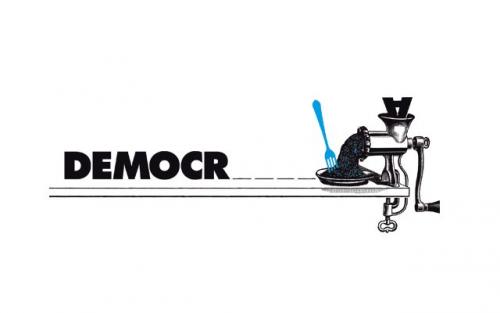The crisis of democracy in neoliberalism
Alternatives have begun to emerge that put these systems into shock: from the right with an authoritarian formula, from the left looking to broaden and renew democracy.
- Análisis

One element that has rapidly become globalized is the crisis of democracy. In Europe, which is proud of its political systems, austerity policies have brought about the generalized discredit of these systems centred around two major political parties. When they both adopted these anti-social economic policies, they rapidly went into crisis, with lost votes and a growing lack of interest in elections, given that both parties promote similar policies. Some alternatives have begun to emerge -- on the extreme right and on the left -- that put these systems into shock: from the right with an authoritarian formula, from the left looking to broaden and renew democracy.
Then the crisis of democracy took a plunge with Brexit and the election of Donald Trump in the US. In Great Britain, the two traditional parties were defeated, in a crucial decision for the future of the country and of Europe itself, by the majority vote to leave the European Union. This reflects how both parties have failed to understand the malaise of a great part of the population – including broad sectors of the working classes -- with respect to the negative effects of neoliberal globalization. The workers, traditional supporters of the Labour Party, concentrated their vote for Brexit, against the decision of that party, and ended up determining the result.
In the United States, it was the victory of an outsider candidate, who, to win, not only confronted the Democratic Party but also the mainstream media, the leadership of his own party and opinion makers. Trump's victory represented a defeat for both parties as expressions of the organized will of US Americans.
Everywhere traditional democracy is losing out. The traditional parties rapidly lose support, people are less and less interested in politics and tend to vote less; political systems go into crisis, they no longer represent society. It is liberal democracy, which has always defined itself as THE "democracy", that is in a state of crisis, under the impact of the loss of legitimacy of governments that have assumed the anti-social projects of neoliberalism, and of politics itself, corrupted by the power of money that under neoliberalism invades all of society including politics.
In Latin America, two countries that had strengthened their political systems, through governments and leadership with popular legitimacy, Argentina and Brazil, have backtracked to governments that have lost -- or never had -- popular support. The political system itself suffers when governments have made promises or have been elected under programmes distinct from what they have applied in practice. The neoliberal programme of budgetary adjustments deepens the crisis of legitimacy both of governments and of political systems.
The central concept of neoliberalism, that seeks to convert everything into merchandise, has come forcefully into politics, with private financing, with campaigns adapted to marketing services, hiring multimillion-dollar activities that turn campaigns into a continuous stream of ads, almost like for any other merchandise. Moreover, governments run by private executives increasingly look like businesses, due to their personnel and the concepts that take precedence for governing with a market mentality.
The neoliberal era is thus the epoch of burnout of the system of liberal democracies. The agents that gave them legitimacy -- parliaments with popular representation, parties with ideological definitions, strong trade unions and union confederations, political leaders representing distinct political projects, the media as a relatively diversified space for debate -- have been hollowed out, leaving the political system and governments hanging in the air. Political disrepute is the immediate consequence of the minimal State and the centrality of the market.
The crisis of democracy has become an issue that extends from the United States to Latin America, passing through Europe and Asia. It no longer makes sense to defend this system in demise, but rather to build alternative forms of the State, of political systems with political representation of all social forces.
(Translated for Alai by Jordan Bishop)
- Emir Sader, Brazilian sociologist and political scientist is coordinator of the Public Policy Laboratory of the Universidad Estadual de Rio de Janeiro (UERJ).
Del mismo autor
- Hay que derrotar políticamente a los militares brasileños 07/04/2022
- China y Trump se fortalecen 04/03/2022
- Pandemia e Ucrânia aceleram decadência da hegemonia norte-americana no mundo 28/02/2022
- Pandemia y Ucrania aceleran la decadencia de la hegemonía norteamericana en el mundo 28/02/2022
- La anti-política generó la fuerza de extrema derecha 22/02/2022
- Las responsabilidades del PT 10/02/2022
- Estados Unidos, más aislado que nunca en América Latina 03/02/2022
- Memoria y olvido en Brasil 27/01/2022
- 2022: tiempos decisivos para Brasil y Colombia 05/01/2022
- Brasil: una historia hecha de pactos de élite 18/12/2021
